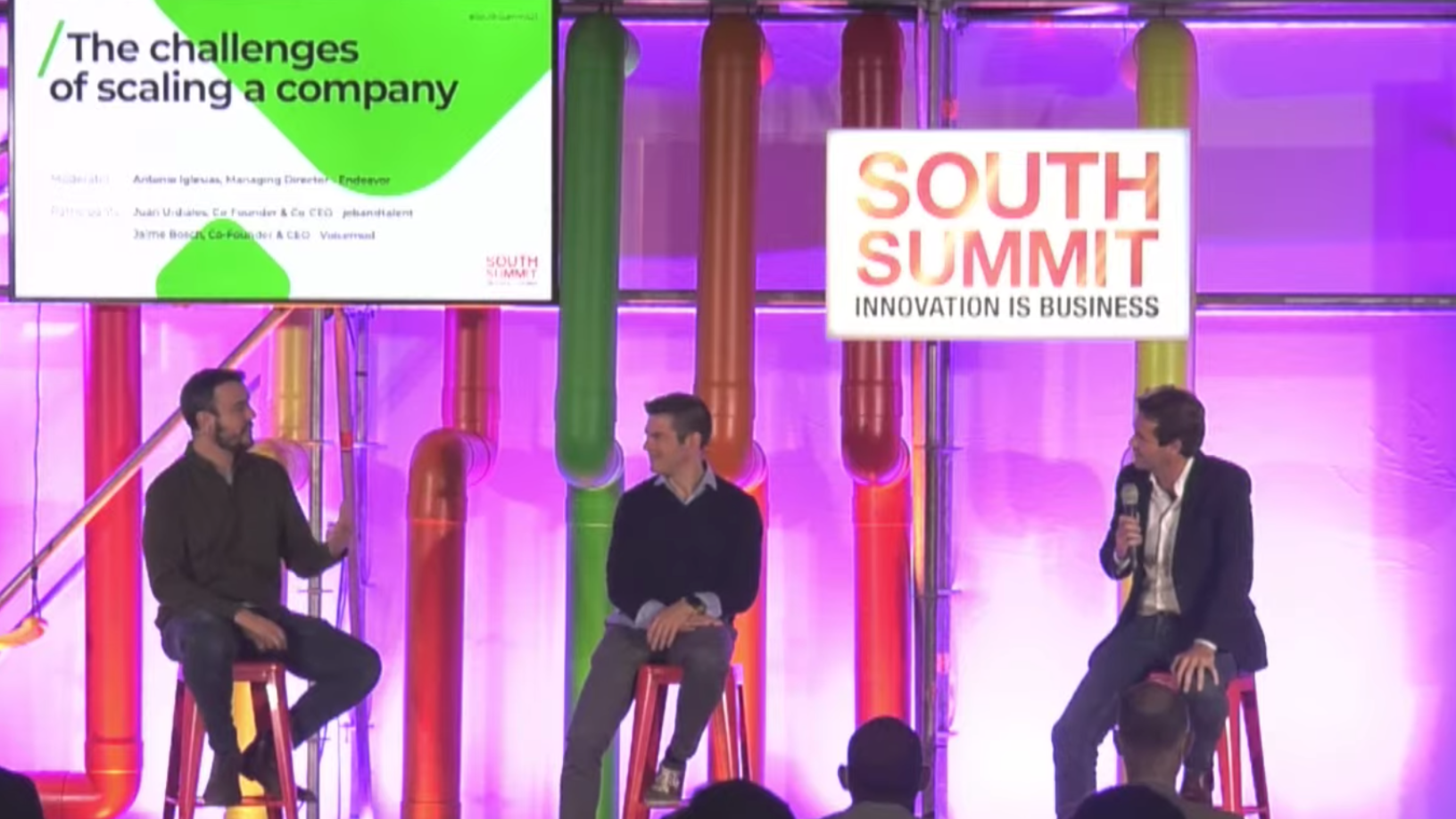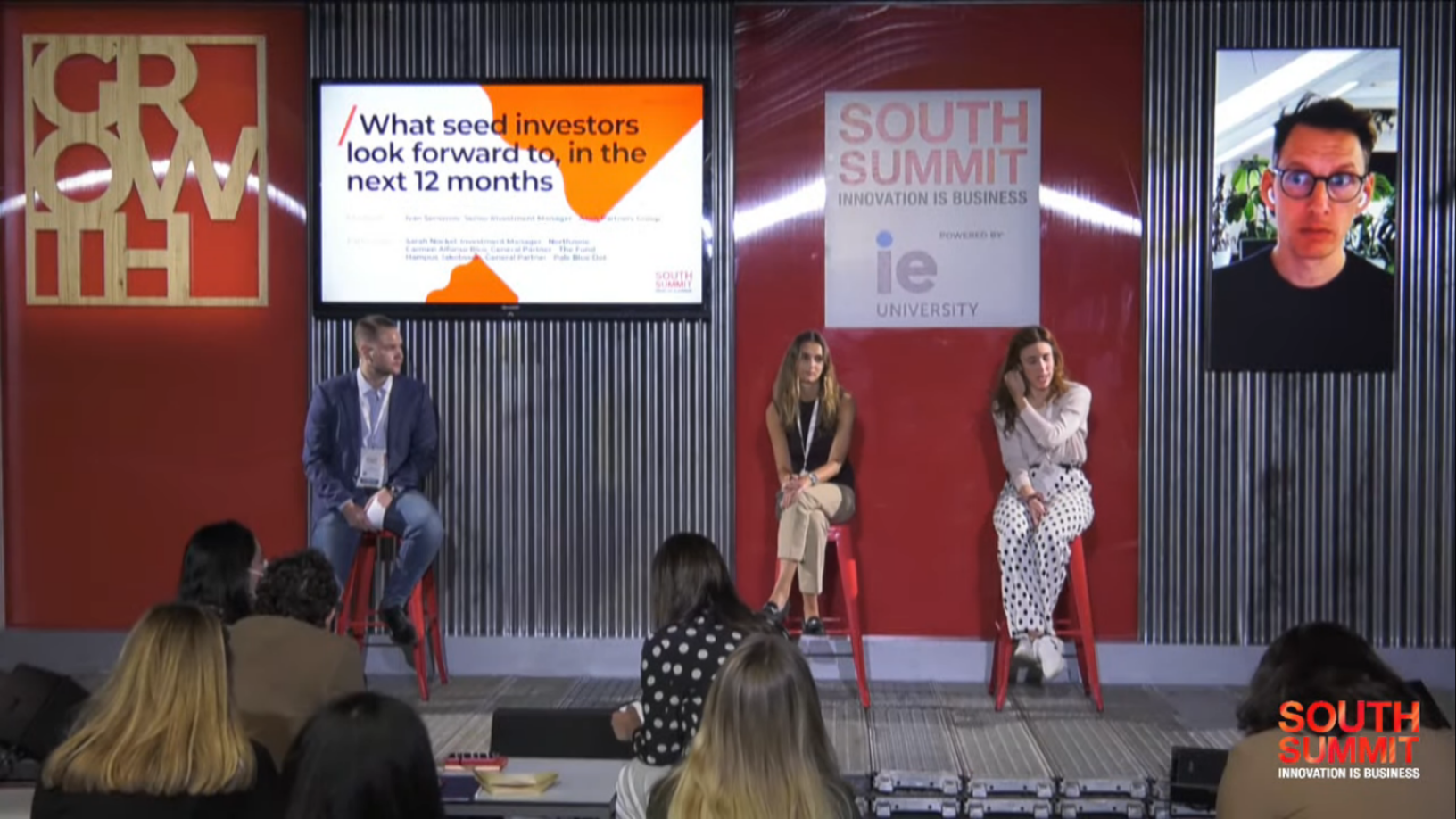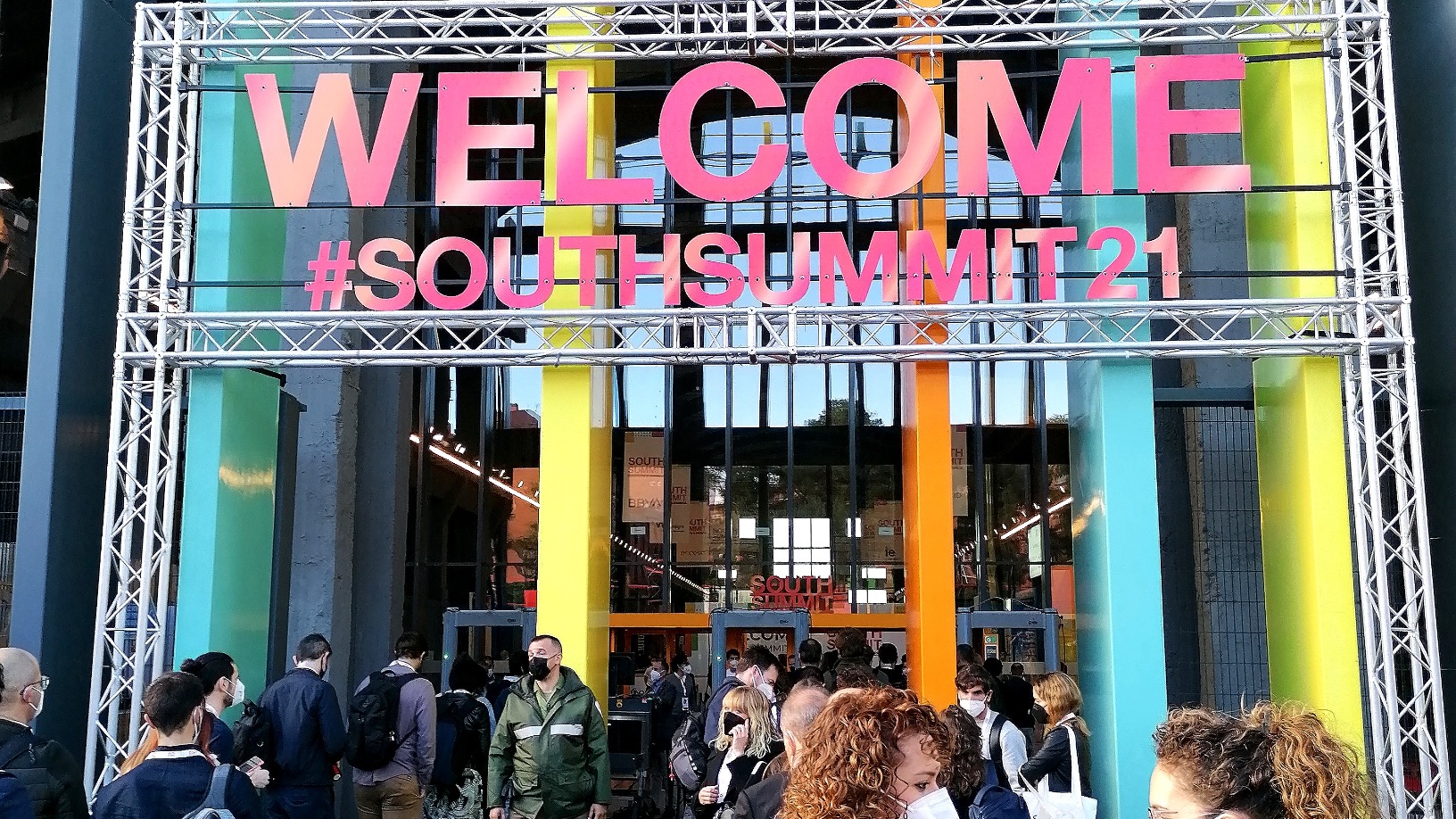What are the biggest challenges, lessons and opportunities to watch for when navigating the transition from startup to scaleup, from hometown hero to global success? And what’s the insider’s view on the future of Spain as an innovation ecosystem?
Two founders of Spanish scaleups shed light on this at the South Summit in Madrid October 6. Juan Urdiales, CEO and co-founder of Jobandtalent, one of Europe’s largest part-time jobs marketplace, was joined on a panel discussion by Jaime Bosch, CEO and co-founder of Voicemod, whose immersive audio experience and voice modification technology is currently in 65 countries.
The discussion was moderated by Antonio Iglesias, Managing Director of Endeavor Spain, a nonprofit that mentors and helps startups and founders in growing their businesses.
The following discussion has been edited for length and clarity.
Antonio Iglesias: What were the challenges you faced as you started the transition from startup to scaleup?
Jaime Bosch: In my experience, the core challenge has always been related to the team — the team is the most important thing in every company. And one of the challenges was maintaining the same culture and values when we were 19 or 90 people in the team, and to be able to scale the communication, the decision-making process, because at the end of the day this is the DNA of the company.
Another thing, which is not mentioned very often, is the challenges faced by the founders. How do you face that tremendous growth, along with the change in your role, responsibilities and how your company works? That process is super hard going for a founder; yet that’s where you probably learn and grow the most.
Juan Urdiales: I agree that the team is the most relevant thing when scaling up a company. I actually have an example of managing this badly in the past.
Back in 2014–2016, we started hiring people based on their CVs, but forgetting what was probably most important: that we should recruit based on the culture of the company and see if the profiles we selected were just good CVs, or if they were actually going to work the way we do as a company.
We ended up scaling the team with a lot of people that had great CVs, but didn't have the same culture
We made this big mistake and ended up scaling the team with a lot of people that had great CVs, but didn't have the same culture as we did. They were not hands-on and in many cases, not creative. They were also not bootstrappers as they were used to working with bigger budgets. We have five pillars that define our operating principles and culture. These operating principles were not met by many of the people we hired back then and we had to fire them.
Since then, we have put in a lot of processes, from recruitment to onboarding and feedback, to make sure that everyone who comes in understands the five operating principles. This is the base to build a bigger organization.
Once you do that, everyone knows what to do, how to work, and how to react to different situations. It's also something super scalable, because it works when you're 100 people and also when you scale to 800 or 1,500 people in the team.
Who did you seek help from as you were facing those new challenges for the first time in your life?
Urdiales: In my case what helped was talking with other founders. We were lucky to have some investors who were also previously founders. I also had a lot of sessions with different entrepreneurs who were at a higher level and very successful in building companies of more than 1,000 employees. I got inspired by many of them.
Again, the main theme repeated across all those sessions was culture — the team’s culture — and how to deal with it as a leader. What I learned from all these founders is that it's in showing how things are done, not necessarily telling the rest what to do and how to do it.
Both of you guys are looking at being 10 times bigger in the next two to three years. What are the challenges that you expect in this next phase?
Bosch: One of the biggest challenges in my sector is hiring the best talent in engineering. We're now facing a new era of full remote work and that makes the market for talent a global one. People want to work from wherever they want and now, they have the possibility of accessing almost any startup in the world.
As we hire, we are competing with companies in Silicon Valley that are raising hundreds of millions of dollars. The salaries of Silicon Valley engineers and North American product managers are now competing with the salaries we have here in Spain. This competition for talent is for me one of the greatest challenges today.
People want to work from wherever they want and now, they have the possibility of accessing almost any startup in the world
Urdiales: In our case, we have identified two key challenges. We have done amazingly well in Europe, where we are the biggest company in our category, but we have a key challenge in front of us: becoming the global winner in the job platform category.
To do so, we need to launch in the most competitive market, the US. This is a massive opportunity as there's not so much competition in our space. We strongly believe we can become player number one in the next 12–18 months. This is absolutely one of our biggest challenges, yet also one of our biggest opportunities.
The second challenge we have is how to build the team, create new products and keep on innovating so we can see a sustainable growth for the next 10–20 years. Right now, we're at a point where we keep growing more than 100% year on year, but if we don't keep improving our service, our platform and the technology, that growth will stop.
There’s a lot of stuff to do to make sure the company keeps growing sustainably at more than 35–40% year-on-year for the next 20 years.
Let’s talk about Spain as an innovation ecosystem. How has being a Spanish company, or being based in Spain, helped or hindered your growth?
Bosch: I think our case is pretty different because we were born international from the start. We built mobile apps for iOS and then for Android, and our first users were American. We’ve always been a weird Spanish startup doing things outside. A lot of people know Voicemod outside of Spain, but they didn't know we were Spanish.
In terms of growth, we are also geographically agnostic. What helped us was having an ecosystem in Valencia, our hometown — a great ecosystem made of accelerators and angel investors. Meeting with [Telefónica's technical innovation hub] Wayra, coming to Madrid, and being invested by Telefonica all helped to boost our growth significantly. In terms of business growth, Spain today represents less than 1% of our business.
Urdiales: In our case, we have seen some challenges being a Spanish company, especially in fueling our growth. We have experienced huge growth, passing from €5m revenue to a billion in a matter of four years.
But when it came to raising funds, it was hard attracting international funds at the same valuations our competitors were getting. Investors were not believing so much in a Spanish company becoming a €5bn-plus entity in the next five years. In 2017 we were valued at 4X less than our competitors in Germany, the UK and the US which were growing less than us. Now we have improved the multiples, we are at 2.5X — still below our peers and our competitors.
When raising funds, it was hard attracting international funds at the same valuations our competitors were getting
Things are changing. We’ve built unicorns in Spain, proving that we have companies that can perfectly go to €10bn–20bn market cap valuation in the next five years. The international investors are starting to see that. This is something that will ease things significantly for new companies coming in.
It's also helping us now, as investors are actually seeing we can be one of those companies that’s growing sustainably for the next 10 years. It's a big change in terms of the size of the investment that can be attracted, the quality of the investors you can get, the valuation, the dilution and so on.
How optimistic are you about the Spanish ecosystem? What are the key insights and trends in the next few years?
Bosch: I think the future is bright for the Spanish ecosystem, and we can see it in the numbers. There are some challenges in regulations, for example, in terms of taxing stock options. If we really want to compete globally in hiring people, then we should also compete in terms of how we pay our employees. Let them have stock options or any other mechanisms that retain talent.
Urdiales: I think there's a big change in ambitions, especially with the new founders in Spain. Years ago, we were starting companies to be sold for €20m, €50m, €100m. Now founders are creating companies and aiming to sell for at least €1bn.
We're probably 20 years behind the US and 10 years behind the UK, but it's happening. The numbers are very similar to what those countries had some years ago. It's a matter of “keep on moving”: pouring more money and more investment into the ecosystem, forgetting a bit about the public sector and governments. If they create laws and regulations that favor us, good. If not, we'll make it happen, as we made it happen before.











